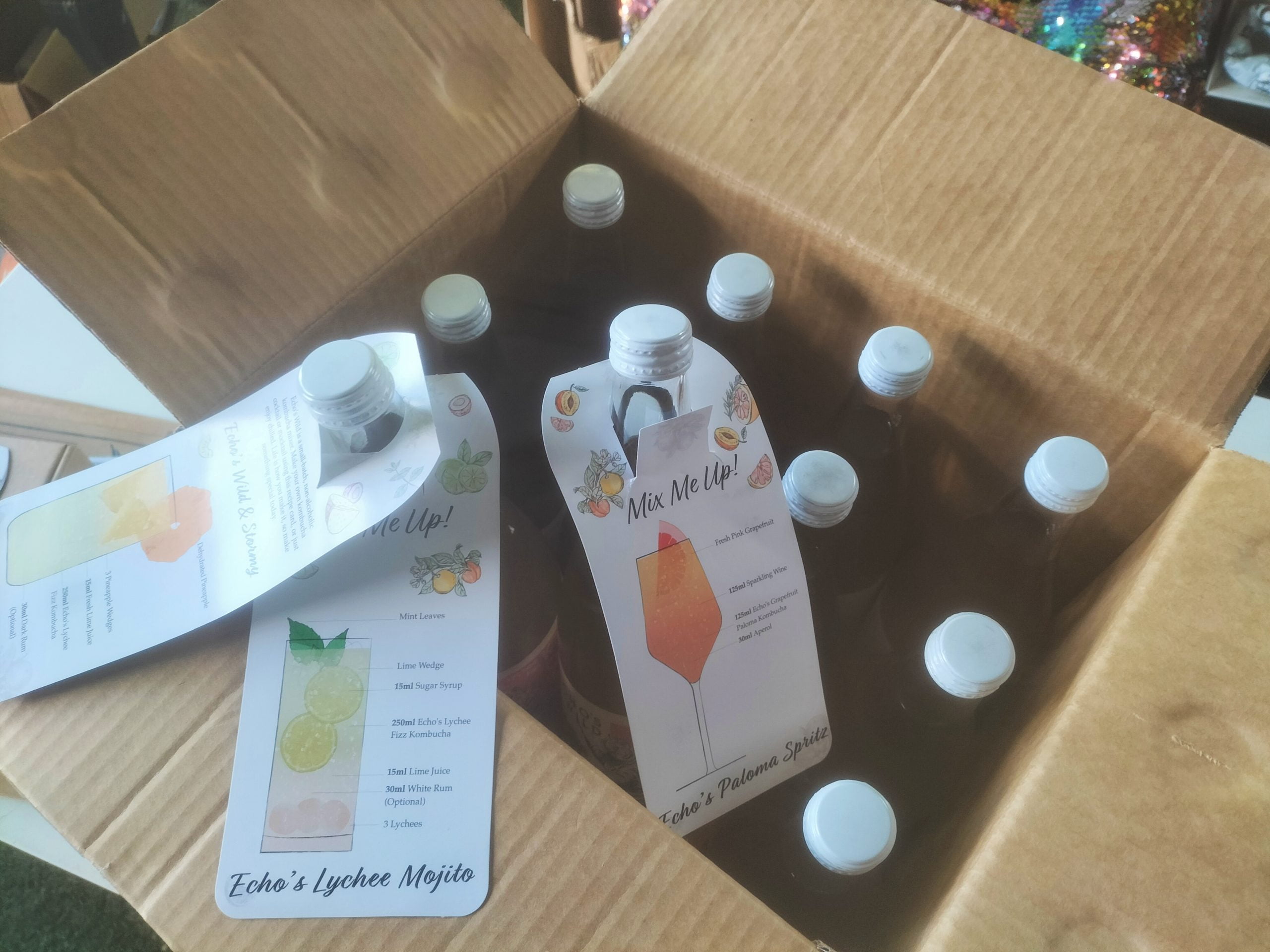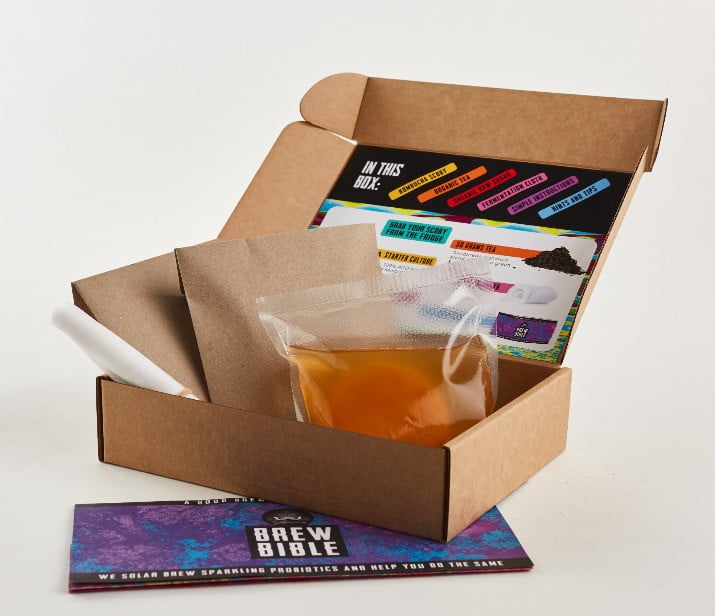
By Deano, Owner of Good Brew and Passionate Kombucha Advocate
There’s a lot of noise in the health and wellness space, and let’s be honest—most of it is nonsense. Every week, a new “miracle” food promises to heal your gut, boost your energy, and turn you into a glowing beacon of wellness. But how often do these claims actually hold up?
Kombucha, the tangy, slightly effervescent fermented tea, has been around for centuries. Touted as a probiotic powerhouse, it has inspired a cult-like following of health-conscious consumers. But is it really worth the hype, or is it just another overmarketed wellness trend?
Recent scientific studies—including independent university research commissioned by Good Brew—suggest that kombucha may actually deserve its reputation. And if you’re a skeptic, you might want to read on.
From Ancient Remedy to Supermarket Staple
Kombucha isn’t some Silicon Valley invention designed to cash in on the wellness craze. It dates back more than 6,000 years, with origins in China and later spreading through Russia and Europe. Traditionally, it was brewed in small batches using a Symbiotic Culture of Bacteria and Yeast (SCOBY), which ferments sweetened tea into a probiotic-rich, slightly tangy drink.
For centuries, it remained a homemade remedy, passed down through generations. But over the last decade, kombucha has gone mainstream, lining supermarket shelves alongside soft drinks and energy drinks.
The problem? Not all kombucha is created equal. Many mass-produced versions have been pasteurised (killing the very probiotics that make it beneficial), force-carbonated (mimicking the fizz rather than developing it naturally), or loaded with sugar after fermentation to appeal to soda drinkers. The real kombucha—the kind with live cultures and active fermentation—works very differently.


What the Science Actually Says
Skeptics often lump kombucha in with other wellness fads, but recent studies suggest that its benefits aren’t just folklore.
A peer-reviewed study in Frontiers in Nutrition (2023) examined how kombucha affects gut microbiota, the trillions of microorganisms that influence digestion, immunity, and even mood. The findings? Properly fermented kombucha enhanced microbial diversity, reduced inflammation, and promoted beneficial gut bacteria-key indicators of digestive and immune health.
Another study published in PubMed (2021) compared raw, unpasteurised kombucha to pasteurised commercial versions and found that heat-treated kombucha had significantly lower probiotic diversity, meaning many of the gut-health benefits were lost.
Even more compelling is research commissioned by Good Brew, which found that traditional fermentation methods resulted in kombucha with higher levels of organic acids, antioxidants, and bioavailable polyphenols-compounds known for their digestive and immune-supporting properties.
This isn’t vague, wishy-washy wellness talk. These are measurable, scientifically-backed effects.
A Drink That Challenges the Soda Industry
If kombucha is so effective, why isn’t everyone drinking it? One answer is habit. The beverage industry has conditioned us to expect overly sweet, highly processed drinks. Soft drinks, energy drinks, and even so-called “healthy” iced teas are loaded with refined sugar, artificial sweeteners, and preservatives, all of which disrupt gut bacteria.
Real kombucha is different. It’s naturally low in sugar, lightly effervescent from the fermentation process (not forced carbonation), and packed with living cultures that actively support digestion. Unlike probiotic supplements-which can be expensive, poorly absorbed, or contain single-strain bacteria-kombucha contains a diverse range of naturally occurring probiotics and postbiotics.
Big beverage brands know this, which is why kombucha is one of the fastest-growing sectors in the drinks market. But that’s also why it pays to be discerning-many mainstream brands have sacrificed fermentation quality for shelf stability, meaning you’re often paying for flavoured soft drink with a kombucha label.


For the Skeptics: Is It Worth a Try?
If you’ve written off kombucha as another hipster wellness trend, it might be time for a rethink. You don’t need to be a hardcore health nut to appreciate the benefits. Many people who start drinking raw, traditionally fermented kombucha notice:
Less bloating and improved digestion after meals
Steadier energy levels without the crash of coffee or soft drinks
Reduced sugar cravings, as kombucha’s slight acidity helps balance taste perception
Better gut health, with fewer digestive discomforts over time
And let’s be clear—kombucha isn’t a cure-all. It won’t miraculously undo the effects of a bad diet or lack of exercise. But as part of a balanced lifestyle, it can play a significant role in supporting digestion, gut microbiota, and overall well-being.
How to Spot a Properly Brewed Kombucha
If you’re going to give kombucha a go, don’t just grab the first bottle you see. Look for brands that brew traditionally, without pasteurisation or post-fermentation sweetness loading. Here’s what to check on the label:
“Raw,” “Unpasteurised,” or “Live Cultures”
Ensures active probiotics are present. You can check if it’s got live cultures in it by putting it in a glass and letting it grow a SCOBY.
Should be fermented in the bottle, not force-carbonated like soft drink. A tell tale sign is that the carbonation varies when you buy it.
Simple ingredients
Tea, water, sugar (for fermentation, not added later), and live cultures. Avoid any kombucha (or any food) that use Enumbered ingredients.
Slightly tangy, not overly sweet
Look out for stale wine flavours. A big kombucha brand in Melbourne uses wine vinegar for their ferments.
Brands like Good Brew follow these methods, ensuring the kombucha you’re drinking is alive, active, and beneficial—just as it should be.


It’s Not Hype If the Science Backs It
Skepticism is healthy, especially in an industry flooded with exaggerated health claims. But when something has been consumed for thousands of years, tested by independent research, and delivers noticeable digestive benefits, it’s worth a closer look.
Real kombucha—the kind brewed with time-honoured fermentation techniques—isn’t just a trendy alternative to soft drinks. It’s a functional, scientifically-supported drink that offers genuine gut-health benefits.
So, if you’ve been holding out on trying it, maybe now’s the time to give a good brew a go. Your gut might thank you.
For those interested in the science behind kombucha fermentation and its health benefits, view our research page together with the following key studies and other resources:
- University research commissioned by Good Brew – https://goodbrew.com.au/about/research/
- Study on kombucha and gut microbiota (Frontiers in Nutrition, 2023) – https://www.frontiersin.org/journals/nutrition/articles/10.3389/fnut.2023.1036717/full
Analysis of probiotic properties in raw vs. pasteurised kombucha (PubMed, 2021) – https://pubmed.ncbi.nlm.nih.gov/34960001/

 54 Hope St, Brunswick VIC 3056
54 Hope St, Brunswick VIC 3056
